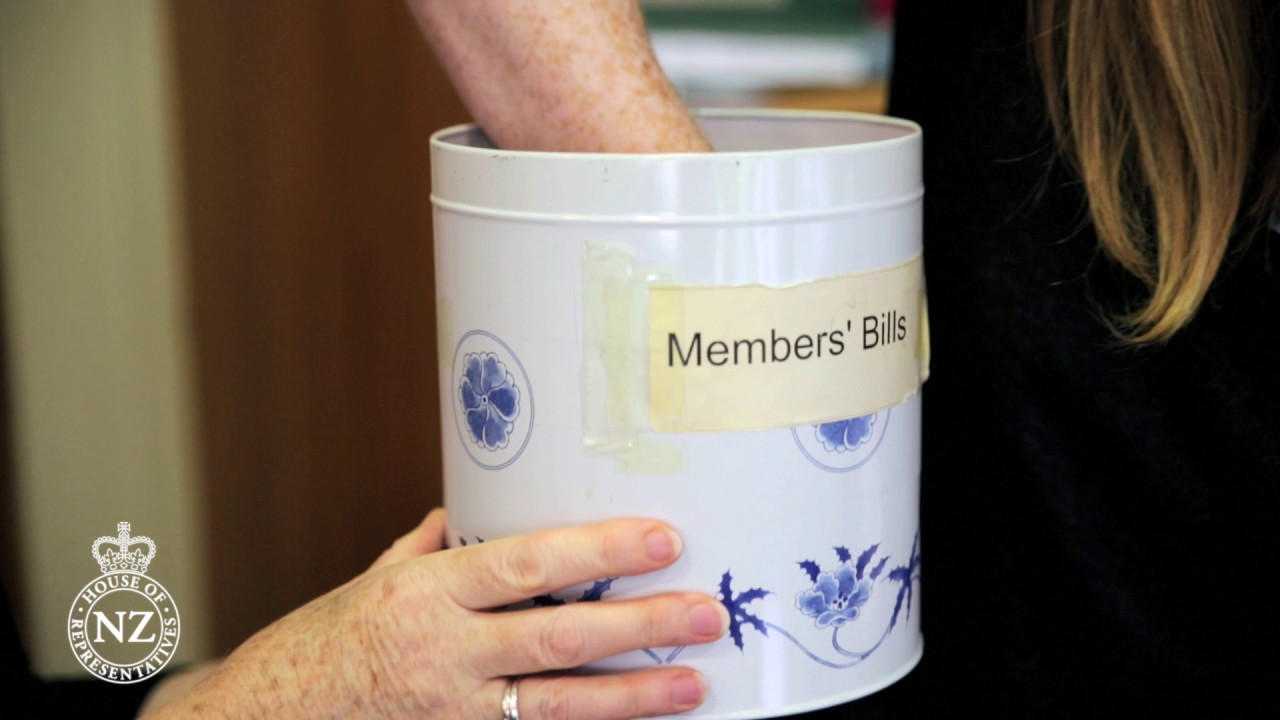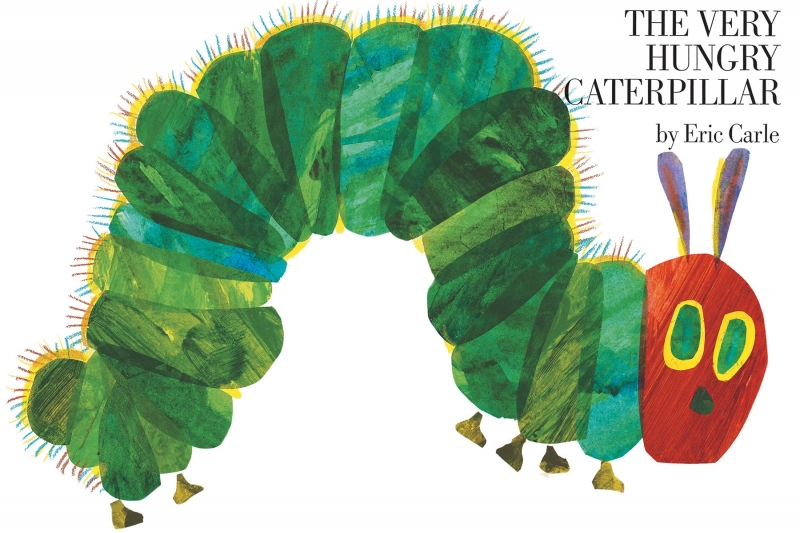
The Plain Language Bill was drawn from the parliamentary biscuit tin on 23 September 2021
We were thrilled to welcome Nelson MP Rachel Boyack as guest speaker at the Plain English Awards ceremony on 14 October 2021. Her speech is below and it’s a great read! Rachel speaks from the heart about her enthusiasm for clear communication and its benefits for New Zealanders. She especially encourages supporters of plain language to support the new Plain Language Bill as it progresses through Parliament.
Welcome by Awards MC James Elliott
Now it’s my pleasure to welcome our guest speaker for the Awards. This is Nelson MP Rachel Boyack. As we said earlier, Rachel’s private member’s bill, the Plain Language Bill, was recently drawn in the parliamentary ballot. So it’s very fitting that Rachel joins us today to be our guest speaker. And with the potential for the Plain Language Bill to become law, New Zealand could join the countries around the world that have a legislative basis for plain language in their government agencies and public communications documents. Thank you for joining us, and welcome Rachel.
Rachel Boyack’s speech
View the video of Rachel’s speech at the Plain English Awards ceremony

Rachel Boyack MP: Champion of plain language
Tēnā koutou katoa. Ngā mihi nui ki a koutou
It is an honour to join you today and to have the opportunity to speak to you about my private member’s bill, the Plain Language Bill. My thanks to the team who have worked so hard to put on these Awards today during a pandemic. It’s no easy feat.
Congratulations to all of the nominees, finalists, and award winners celebrated today. Thank you for your commitment to plain language and your willingness to put yourselves forward for judging. While it is always risky singling out one organisation for praise, as the MP for Nelson, I am pleased to see Cawthron on the list of finalists today. I’m proud to be a trustee of Cawthron, and I acknowledge their commitment to good science communication. The last two years are a stark reminder of why good science communication is so important.
It is somewhat nerve-wracking to be speaking to a group of communications experts about a Plain Language Bill. Since my bill was drawn from the parliamentary biscuit tin, I had been very mindful that all of my communications must be crystal clear. I would like to acknowledge my colleague, Chris Hipkins, who was the original drafter of the Plain Language Bill almost 10 years ago.
As a new MP, I was asked to take on this bill. And there was a reason that I was delighted to do so. Fifteen years ago, I was a fresh young graduate starting my professional career in a small public sector agency in Wellington called the Leadership Development Centre. I was given a role in communications despite having no formal training in this type of work.
My boss, who was a pedant, sent me on a number of plain English courses with Write Limited. The training from Write set me up in my professional career, and has helped me to ensure that the documents and statements I produce are clear and easily understood. The first thing I did after having my bill drawn was to ask my assistant to ring Write and set up a meeting.
I am keen to work with the sector and all of you, the plain language champions across Aotearoa, as my bill progresses. The purpose of my bill is to require public sector agencies to write their documents and their website content using plain language. Agencies will have a plain language champion who will be responsible for training staff and reporting to the Public Service Commission about plain language use in their agency. Members of the public will be able to raise concerns about documents with the plain language champions.
Plain language is a democratic right. My goal is for more people to have good communication from government agencies so that we can all participate fully in our democracy. I would love your help turning this bill into law. As the bill progresses through Parliament, I am keen to hear from the sector about how we can make the law work better. This is also an opportunity for us to speak out about the benefits of plain language in the public and private sector. So let’s use it.
Thank you again for inviting me to speak to you today. Congratulations to the award winners.
Tēnā koutou, tēnā koutou, tēnā koutou katoa
Meet the Awards winners for 2021
Becoming a country of clarity: more about the Plain Language Bill
Plain Language Bill aims to end bureaucratic bluster
Plain Language Bill not just about ‘dumbing things down’, coach says
Anne-Marie Chisnall November 4th, 2021
Posted In: 2021 Awards ceremony
Tags: champions, clear writing, Plain English Awards, plain language, Plain Language Bill
Media release: 14 October 2021
Winners in the 2021 annual Plain English Awards were announced at an online ceremony earlier today. More than a hundred people attended the virtual ceremony, including many Awards supporters from outside New Zealand.
Two Champion winners
The award for the Plain English Champion — Best Organisation went to Citizens Advice Bureau New Zealand (CAB). Lead judge for the category Matt Huntington said he was particularly impressed by CAB’s understanding of how communicating clearly is key to their effectiveness.
‘And then they take it one extra step to acknowledge the importance of communicating with empathy and respect on top of that!’ Matt says. ‘The fact that they can do this successfully while relying on such a large and diverse group of volunteers is a testament to their grounding in plain language communications.’
Entries for the Awards opened up to Australia for the first time this year. And one of the Australian entries was awarded the Plain English Champion — Best Individual or Team. Lauren Kelindeman, from law firm Legalite in Melbourne, was praised by judges for her exemplary work. Legalite was also a finalist in the Plain English Champion — Best Organisation category.
‘Lauren’s commitment to plain English shines bright in the amount of work she’s done and the quality of the advice she’s created,’ says judge Steph Prince.
In praise of clear documents and websites
The award for the Best Plain English Document in the private sector went to Ryman Healthcare for its myRyman Life eLearning tool. Health Navigator NZ took out the public sector award with its leaflet on treating type 2 diabetes, Empagliflozin.
The Best Plain English Website award for the public sector went to the Ministry of Social Development for the website www.youthservice.govt.nz. No entries made it to winner status in the private sector award for this category in 2021.
Rethinking a document or website to improve it
The Best Plain English Turnaround award went to Waka Kotahi New Zealand Transport Agency for its turnaround of The New Zealand code for cycling.
Legal, Annual Report, and Technical Communicator categories
Southern Cross Travel Insurance took out the Best Legal Document award for its Domestic Travel Insurance Policy Document.
National Trauma Network won Best Plain English Annual Report for its New Zealand Trauma Registry Annual Report 2019/20.
The Best Plain English Technical Communicator was the team at thinkstep-anz.
Spotlight on the humble sentence
Auckland City Council won the award for Best Plain English Sentence Transformation.
People’s Choice — the best ‘but no worst’
Several top-notch entries were submitted by members of the public for the People’s Choice — Best Plain English Communication category. Kiwibank won this award for its letter We’re improving our home loan documents.
One of the judges of this entry said, ‘Taking complex subject matter such as home loans and making it accessible is not easy. Kiwibank have done an excellent job in communicating this, and on a single A4 sheet! Bravo!’
And in what is thought to be a first for the Plain English Awards, no entries were received for the notorious People’s Choice — Worst Brainstrain award. Lead judge for this category Simon Hertnon says he’d like to think that this is a good sign: ‘A sign that people are putting more thought into their communications. That the plain language message is getting through.’
Telling stories to inspire others
The theme of this year’s Awards was ‘Story!’ Awards founder and CE of plain language consultancy Write Limited Lynda Harris says:
‘The goal of sharing stories is to help people understand the “why” behind different plain language projects. That is, why a plain language approach was vitally important for that project, and how it helped its success.
‘By telling people’s stories, we want to shine a light on the impact of people’s efforts. And to give the public a glimpse behind the scenes of plain language as it plays out in the lives of individuals and organisations. Ultimately, we’d like people to be inspired to take similar approaches.’
Thanks to Awards sponsors
Sponsors play a key part in keeping the Plain English Awards going. Organisers would like to thank the following organisations for their support: WriteMark Limited, Write Limited, the Wright Family Foundation, Graphic Solutions, NZ Super Fund, Newsroom, Streamliners, TechCommNZ, Skillset, printing.com, MoneyHub, Consumer, Shelly Davies, Community Comms Collective, Editor Software (UK), Informed Investor magazine, Kendons, and Modica Group.
Find out more
See the full list of winners and finalists
Nicola Welby October 20th, 2021
Posted In: 2021 Awards ceremony, Communications, Media release
Tags: 2021 Plain English Awards, Best communication, Best Plain English Communication, Brainstrain, champions, clear communication, People's Choice, plain English, Plain English Awards, plain language, recognition, writing for the public

We’ve got lots to celebrate this year! | Photo by Sharon McCutcheon on Unsplash
Join us to celebrate our finalists and winners at our virtual Awards ceremony on Thursday, 14 October.
Our people are at the heart of what we do
Every year we have more people involved in the Awards than you’d expect. Many of these people are behind the scenes and plenty of them not in the limelight.
We love getting lots of our people together at the end of the Awards season to celebrate our finalists and winners, and promote the benefits of clear communication. Our Awards ceremony usually happens in person, but this year we need to think differently.
We’ll celebrate online for 2021
We knew from the outset that we’d need to think laterally when planning for our 2021 ceremony. So, in place of our in-person event, we’re going to run our Awards ceremony online.
We’ll miss being able to applaud our winners in person. At the same time, we’re excited about the many opportunities running an online ceremony gives us. We definitely won’t have a seat limit in 2021! And we’re going to run the ceremony at a time that works better for some our overseas judges and entrants. A flow-on benefit will be that you’ll be able to join during the day if you’re in New Zealand.
Our Awards ceremony is right in the middle of International Plain Language Week too. So you’ve got a readymade way to get involved in an international event that celebrates clarity.
So come along, grab your friends and supporters, and join us at our online Awards ceremony. We’ll have more details for you soon. For now, make sure you pencil in 11am until 1pm on Thursday, 14 October to celebrate with us!
Oh, and did we say that registrations will be free of charge this year? See you in October!
Who’s in the running for an award in 2021?
Huge thanks to our sponsors, who make the Plain English Awards possible
Melissa Wardell September 13th, 2021
Posted In: 2021 Plain English Awards, Awards ceremony, Communications, Finalists, Judges, People's Choice awards, Plain English Awards, Winners
Tags: 2021 finalists, 2021 Plain English Awards, 2021 winners, award winners, Awards ceremony, Best Plain English Communication, clear communication, Industry awards, online ceremony, People's Choice Awards, Plain English Awards

Don’t panic! You’ve got extra time to get your Plain English Awards entries in | Photo by Lukas Blazek on Unsplash
We know what it’s like to be busy, and how difficult it can be to meet deadlines when the pressure’s on. That’s why we’re giving you extra time to submit your Plain Language Awards entries.
Entries for the 2022 Plain Language Awards will now close at 5pm on Tuesday, 2 August.
Get the recognition you deserve for your clear communications
The Plain Language Awards are one of New Zealand’s leading industry awards. Imagine how good you and your team would feel if you became a finalist … or even a winner?!
Find out more about our Awards categories
Get some inspiration from our past winners
Nominate the good and the bad for People’s Choice
Dob in a bad document, or praise an easy-to-read one! The more the public speak up and demand plain English, the easier it is for us all.
Power to the people — vote for plain!
Have you read something that strained your brain? Nominate it!
Get involved with the People’s Choice
It only takes a sentence!
If you’re short on time, enter a few beautifully transformed sentences for the Best Plain Language Sentence Transformation award.
Well-written sentences create a fine reading experience
Enter your transformed sentences by 2 August
Nicola Welby July 29th, 2021
Posted In: 2022 Plain Language Awards, Best Plain Language Sentence Transformation, Communications, Industry awards, People's Choice awards, Social good
Tags: Best Plain English Communication, clear communication, clear writing, Industry awards, People's Choice, Plain English Awards

Calling all our Australian friends: It’s time to celebrate your successes in clear communication | Photo by Karl Anderson on Unsplash
Plain language is important to us here in New Zealand. It’s also a big thing in Australia. At the moment, Australia doesn’t have any awards celebrating clear communication.
Let’s not beat around the bush! After recognising the gap and fielding several enquiries, we’re opening up entries to Australia.
Haere mai, Australian plain language enthusiasts!
We’re excited to now be welcoming entries from any individual or organisation in Australia, as well as New Zealand. You’d just need to meet the same conditions as entrants do here: See our terms and conditions
You’ll also need to be an organisation that’s registered in Australia, or have a registered Australian address.
The standard entry fee for people in Australia will be AUD$125, and AUD$65 for registered charities.
Australian-based entries are welcome for any Awards categories
From Champion Organisation through to Best Plain English Legal Document, people and businesses in Australia are welcome to enter any of our categories. You can also nominate the good and the bad in our two People’s Choice categories: the Best Plain English Communication and the Worst Brainstrain Communication.
So what are you waiting for? It’s time to get entering!
Entries are open until 31 July
Read about how to enter
Melissa Wardell June 17th, 2021
Posted In: 2021 Plain English Awards, Australian clear communication awards, Communications, People's Choice awards, Plain English Awards
Tags: Best Legal Document, Best Organisation, Best Plain English Communication, Brainstrain, Champion, clear communication, People's Choice Awards, plain English, Plain English Awards

Shine bright like a diamond — enter the champion category of the Awards in 2021 | Image by Dimitris Christou from Pixabay
You’ve read about the Champion category for Best Organisation. But, rather than an organisation, you have an individual (maybe it’s you?) or a team that deserves recognition for its plain language achievements.
The Plain English Champion — Best Individual or Team award honours the people who work hard to make plain language a reality in their organisation. The award is open to individuals or teams who have significantly contributed to a plain language initiative in any New Zealand organisation.
Now is your time to shine, so don’t be shy!
We know that so much work goes into projects that support clear communication. Over the last year or so we’ve seen some amazing examples of this. These communications played a big part in us reinvigorating the Plain English Awards for 2021.
To the people behind New Zealand’s public health communications about COVID-19, we’re looking at you! And we know many other teams and individuals have done similarly inspiring work, whether in the public eye or known only to their colleagues or customers.
Here are some examples to get you thinking. You or your team might have:
- influenced senior leaders to support a plain language initiative
- led a plain language project, large or small
- run workshops or regular team meetings on using plain language
- formally or informally supported other writers to help them produce clear, reader-friendly communication more consistently
- written newsletter articles or intranet resources about plain language for your team or organisation
- rewritten template letters into plain language, saving time for your team
- created clear, easy-to-use policies or guidelines for your organisation.
Meet the winning entry in 2018
Here’s what the judges said about the impressive entry from the MSD Better Letters Project team in 2018.
This initiative is representative of the nitty gritty, down and dirty, battlefield for plain language. They are making appreciable change at scale. And making a difference in the lives of people in vulnerable circumstances. Very well done. The Better Letters Project at MSD is a worthy plain English champion!
Read more about the Better Letters entry
Meet finalist Andy Baldwin of WineWorks
The judges loved Andy’s passion as a champion of plain language in his organisation. Read how he did it.
I enlisted some help and formed a team. I began to study plain English and promote it within the organisation, presenting my ideas to managers and directors. Like any movement it took time to get momentum, but once we achieved ‘critical mass’ people began asking me to teach them how to write better. I think this is the biggest compliment of all. Now we have people throughout WineWorks writing and using great plain English SOPs in their daily work. This is improving our processes and helps to upskill our teams.
Read more about finalist WineWorks
Entries are open until 31 July
Read about how to enter
Read the requirements for the Plain English Champion — Best Individual and Team category
Discover whether you’re a contender for the Plain English Champion — Best Organisation category
Nicola Welby June 14th, 2021
Posted In: 2021 Plain English Awards, Awards brand, Best Individual or Team, Communications, Plain English Awards, Plain English Champion
Tags: 2021 Plain English Awards, Champion, champions, clear communication, plain English, Plain English Awards, plain language

We’re excited to announce that entries are open! | Photo by James Lee on Unsplash
The Awards are officially open for entries in all categories. After a break in 2020, the Awards are back for 2021 — and they’re better than ever! We all saw the amazing benefits of clear and plain communications from the Government and health agencies. This heightened awareness of clear communication has set the scene beautifully for the return of the Plain English Awards.
Here’s what you need to know about the Awards in 2021. We’ve got a new unifying theme for the Awards, a combination of new and familiar judges, and all your favourite categories.
Tell the story of your plain language project
This year we’ve introduced a Story theme — and we’re offering you the chance to share your plain language stories through our video gallery. We’re particularly looking for people in workplaces to share stories about the benefits of their plain language projects. No project is too big or too small!
These stories will inspire others to embrace the benefits of plain language for organisations and their customers. We hope the gallery will become a go-to resource for people to get plain language inspiration.
Our judges and sponsors are joining in the fun as well. You can share a video without needing to enter the Awards. But we hope you’ll feel inspired to enter once you read about the available categories.
Check out the first videos in the gallery
Meet our judging panel
From Dunedin to Denver, Gisborne to Edinburgh, this year’s judging panel is made up of plain language experts from around New Zealand and the world. You’ve met some of them before and others are joining us for the first time in 2021. Together they make up an experienced and insightful team of plain language pros!
Find out more about this year’s judges
Choose your Awards category and get your entry ready
The Awards have a range of categories to suit almost every type of document (and websites).
If you’re starting off or pressed for time, you might consider entering the short and sweet Best Plain English Sentence Transformation. If you’ve transformed a whole document, you might be ready for the Best Plain English Turnaround. You can enter a Best Plain English Document or Website — with a choice of public or private sector.
For specialist business documents, you’ll find a Best Plain English Legal Document category and Best Plain English Annual Report. We’re seeing some of the finest examples of these documents coming through, with the quality of entries rising every year.
Specialist technical communicators have a category just for them. And those working on a team project or an organisation-wide project can enter the Champion categories.
Discover whether you’re a contender for the Champion category
Get some inspiration for the Sentence Transformation category
Review all the categories and find out how to enter
Nominate a best or worst communication
The Awards also include two categories that any member of the public can nominate communications for, to be judged by our People’s Choice judging panel. These are the People’s Choice Best Plain English Communication and the Worst Brainstrain Communication categories. These categories are always lots of fun — we love giving a voice to all of New Zealand.
Read about the People’s Choice in 2019
Get involved in the 2021 People’s Choice awards
Anne-Marie Chisnall May 31st, 2021
Posted In: 2021 Plain English Awards, People's Choice awards, Plain English Awards
Tags: Best Plain English Communication, clear communication, clear writing, judges, People's Choice, People's Choice Awards, plain English, Plain English Awards, Worst Brainstrain

The very hungry caterpillar, by Eric Carle | Photo by eric-carl.com
I don’t know about you, but I first learnt how to write professionally in an academic setting — the more information you can feed into someone’s brain, the better the result. While we might love to gorge ourselves on a treasure trove of knowledge, too much information can wear us out. Our brains have to work even harder to digest what’s in front of us, and sometimes all the ‘smart’ words don’t even make sense.
The Best Plain Language Sentence Transformation is one of my favourite categories in the Plain Language Awards. You get to see great before-and-after examples of unplain, jargon-heavy text transformed into beautifully clear sentences. But an added bonus for entrants is being validated in having permission to write using plain language.
Trim the fat, keep the flavour
The easiest way to think about the Best Plain Language Sentence Transformation category is through the lens of a classic childhood read. The Very Hungry Caterpillar by Eric Carle (rest in peace) is a children’s picture-book that tells the story of a caterpillar who becomes a butterfly.
The caterpillar hatches from its egg, and begins to eat more and more each day. At one point, it has a ridiculous feast and becomes ill from overeating. Having learnt its lesson, the following week it takes on a lean diet with a large green leaf, before spinning a cocoon to chill out and emerge as a beautiful butterfly.
The caterpillar represents all the words we want to write. We’ve hatched an idea and we want to spread our message. But we’ve got so many thoughts and ideas to add that we sometimes lose our direction. Our sentences become bloated and it’s exhausting to even look at our writing. What we’re left with is the Sunday evening special — what any food critic would describe as a hot mess.
And on another level, the caterpillar represents your audience — who you’re writing for. And the food it eats is all the words that you’re throwing at it. You wouldn’t take your vegetarian mates out to an all-you-can-eat Brazilian barbecue now, would you?
Five easy tricks for a word diet — thesauruses hate them!
So what’s the recipe for a great sentence? Here are five easy tricks to cook up a beautiful serving of alphabet soup.
- Keep sentences to an average of 15–20 words for print, or 12–15 words for online text.
- Use the active voice, rather than the passive voice.
- Ask a mate to read what you’ve written and see if it makes sense to them — bonus points if they’re your target audience.
- Be consistent in how you describe technical, complex terms.
- Write like a human and not like a robot.
Beauty is in the eye of the beholder. And for me, a crisp and clear sentence is the apple of my eye — a work of art that I appreciate more than anything else. So bring out the red pen, bin the jargon, and show the world all the beautiful butterflies you’ve created.
Enter the Best Plain Language Sentence Transformation category
Jonathan Tan May 31st, 2021
Posted In: 2021 Plain English Awards, Best Plain English Sentence, Plain English Awards
Tags: 2021 Plain English Awards, Best Plain English Sentence, Best Sentence, plain English, Plain English Awards, transformation
Media release: 7 May 2021
After holding off entries last year, the full Plain English Awards are back in 2021. The Awards will look a little different this year, with a virtual ceremony and some new ways for entrants to share their inspiring work in clear communication.
Fresh Awards with a new theme
This year’s theme for the Awards is Story. We’re inviting the public to share the stories behind their plain language projects in short videos. We’ll showcase these videos in a gallery to inspire and enlighten the wider public. The video gallery is open now.
‘A major goal for the Awards has always been to bring plain language into common use,’ says chair of the WriteMark Plain English Awards Trust, Gregory Fortuin. ‘We know that stories raise awareness and inspire action. The more visible the stories of our entrants, the more sparks of possibility and innovation will be lit.’
All the familiar categories are back
This year’s Awards will feature all categories, including the two People’s Choice categories for Best Communication and the infamous Brainstrain.
‘As we’ve seen in the events of 2020 and beyond, clear communication makes a real difference in people’s lives,’ Gregory says. ‘Here’s a chance to celebrate all the great work that people having been doing over the past couple of years.’
Important dates for the 2021 Awards
- 1 June: Entries open
- 31 July: Entries close
- 30 September: Finalists announced
- 14 October: Winners announced
Big thanks to our media partner, Newsroom
The goodwill and support of our sponsorship partners keeps the Plain English Awards ticking. We’re immensely grateful to New Zealand-based news and current affairs site, Newsroom.co.nz for believing in our cause and being our media partner.
ENDS
Get more information
www.plainlanguageawards.org.nz
Jonathan Tan, project manager, 2021 Plain English Awards | enquiries@plainlanguageawards.org.nz
OR
Gregory Fortuin, Chair, WriteMark Plain English Awards Trust | 021 465 254
Nicola Welby May 7th, 2021
Posted In: 2021 Plain English Awards, Communications, Media release, Plain English Awards, Story theme
Tags: 2021 Plain English Awards, Best communication, Best Plain English Communication, Brainstrain, clear communication, People's Choice, plain English, Plain English Awards, plain language, recognition, writing for the public

Are you the Champion we're looking for? Photo by Clark Tibbs on Unsplash
Are you one of our award-winning plain language Champions? After a break of almost 3 years, our premier Champion categories are back: Best Organisation and Best Individual or Team. The Award for Best Organisation is highly sought-after and you’ll join an elite band of past winners.
We know for sure that the judging team is looking forward to hearing about your plain language project. But how do you know whether the time is right to enter the Best Organisation category?
Here are five clues to help you decide if it’s your organisation’s time to shine. If any one of them is true, we recommend you enter!
1. Your organisation champions and celebrates clear communication
Clear communication is something your organisation values and rewards. Your leadership team walks the talk, promoting the benefits of clear communication throughout your organisation. You may even have gone the extra mile by working towards an external mark of quality like the WriteMark or WriteMark Plus.
Your internal documents, such as brand guidelines, policies, and newsletters, are written in plain language. Role descriptions emphasise the need to write clearly. Perhaps you even have formal KPIs for using plain language.
Let your industry peers know you’re a leader by entering the Champion category.
2. You’ve noticed better business results from clearer communication
You’ve got case studies or numbers that show improvement. Achieving a measurable return on your investment in business writing is evidence of Champion performance.
You recognise writing is more than an everyday activity in business — it can be a way to improve business success.
If you’ve cracked it, you deserve a medal!
3. You’ve had great feedback from customers about your communication style
Your customers value the way you communicate. Getting praise from customers for using plain language is praise indeed! People don’t offer praise lightly. They’re much more likely to complain about poor communication — or to say nothing at all.
Great feedback for your communication style shows you’re getting your message across in a way your customers appreciate.
We’d like to hear what brought about that success — and to tell the world about it!
4. You train your people in better business writing
Organisations that commit to a plain language culture offer their people resources and training. Writing in plain language takes skill and effort.
You train your staff to write clearly, which gives them a step up. They enjoy their writing more, and they write more efficiently.
Good on you for giving your people the tools they need to write well. That’s worth celebrating too!
5. Your organisation encourages peer review of print and online content
Peer review at key stages of a writing project is expected. People in your organisation seek out peer review as they can see the value in another person’s critique. Your peer review process uses a checklist or standard and is part of a defined process to achieve quality.
Reviewing and feedback can take place through user-testing too. Do you regularly seek feedback from real readers on your communications?
Good systems and processes are key to a Champion mindset. Enter the Awards and get some well-deserved external recognition for your work.
Preparing your Champion entry
Find out how to enter our Champion categories
Read the criteria for our Champion categories
Anne-Marie Chisnall May 5th, 2021
Posted In: 2021 Plain English Awards, Communications, Industry awards, Plain English Awards, Plain English Champion
Tags: 2021 Plain English Awards, Best Organisation, Champion, clear communication, clear writing, Industry awards, Plain English Awards, Plain English Champion










